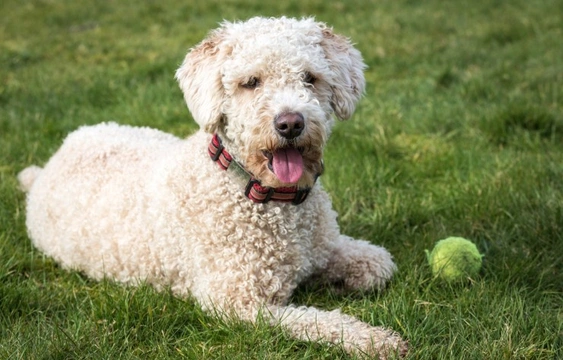
Five facts you probably didn’t know about the Spanish water dog breed
The Spanish water dog is an energetic and versatile all-rounder, which makes them hugely popular as both pets and working dogs all across the world, including within the UK.
With their dense, curly coats, open friendly faces and entertaining characters, this medium-sized breed has won a lot of admirers throughout their histories, and they are generally excellent pets that are very rewarding to have around.
Many people automatically think of the Spanish water dog in the same terms as they do other dogs with similar names, such as the Portuguese water dog and the American water spaniel, but their name is in fact something of a misnomer. The Spanish water dog was not originally prized for their swimming prowess at all, but rather as a livestock herding dog!
If you are interested in potentially buying or adopting a Spanish water dog or are simply interested in finding out more about them, this article will introduce you to five facts about the breed that you probably don’t already know. Read on to learn more.
They were not originally water dogs!
As mentioned, the name Spanish water dog is something of a misnomer, and they are livestock herding dogs first and foremost. While they are good swimmers and are comfortable in the water, their history involves land-based farm work, and they are brilliant at working with a farmer by sounds and hand signals only, having an almost supernatural ability to communicate and respond on the fly.
They have a strong herding drive and within a suburban home, will often actively look for things to herd, which may go as far as other pets or small children!
However, they do also love to swim and will happily play and retrieve in the water, and their thick, densely curled coats help to repel the water and keep them from getting waterlogged.
They are very active and lively
Like most herding and working dog breeds, the Spanish water dog is an energetic, lively breed that needs lots of exercise and time spend on the run. They do not thrive within a sedentary lifestyle, and need long walks every day as well as lots of time playing and doing things. They need mental as well as physical stimulation, and will not be happy if they are left alone for long periods of time, or not permitted to exercise both their minds and bodies regularly and for several hours a day.
They are very good at canine sports and anything that involves both mental and physical work, and they take commands well and are generally keen to learn new skills. The Spanish water dog is also something of a show off, and they can make for real crowd pleasers at formal events and competitions!
They are loving and kind, but also protective
If you are looking for an affectionate, loving and kind dog that is always cheerful and will be pleased to simply be involved in whatever you are doing, the Spanish water dog is a good pick. They are loyal to their families but also, don’t tend to be shy or wary with strangers, and so can fairly be classed as a personable and open dog that is easy to read and nice to have around.
They will also protect their families and defend them if pushed to, and can be very protective-but they are the type of dogs that would much rather negotiate and make friends rather than getting into a fight!
They are social and love the company of other dogs
The Spanish water dog is usually right in the thick of it in the dog park, encouraging other dogs to play and haring around with the rest of the pack. They generally take very well to meeting new dogs and often love to have the company of another dog at home, and so assuming that they are properly socialised when young and are appropriately supervised, their idea of a great afternoon out will likely involve racing about after a ball with a group of other dogs!
They can also live quite happily with cats providing that they are introduced and supervised properly, but like all dogs, may chase smaller prey when outside of the house.
They are excellent pets for families
If your family is fit, active lively and loves to spend time out of doors, the Spanish water dog might be the right choice of pet for you. They are medium sized and so a good fit for most homes, and their curly coats do not require a large amount of grooming and maintenance, as they do not tend to get particularly tangled or matted up.
They are also fairly adaptable and handle new situations well, and will generally be able to join a family with an existing dog with no problems.



